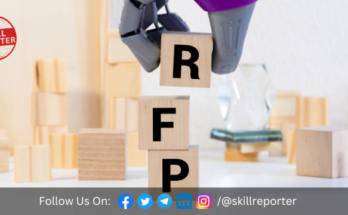New Delhi : India is one of the fastest growing economy of the world. It is estimated that 250 million people are set to join workforce by 2030. Despite 62% of population in working age group only 4.69% of India’s population has undergone formal skill training. Also, the contribution of MSME sector is only 17% of GDP as compared to 85% in Taiwan, 60% in China and 50% in Singapore which shows that the sector is being underutilized. About 80% of graduates in India does not posses’ skills relevant to market which makes them unemployable. It is estimated that 93% [1][2]of workforce in India is engaged in informal/organised sector. There is a need for market aligned skill development programs to address the gap of skilled population.
Market Aligned Skill Training (MAST) is one of the programs of American India Foundation under livelihood verticals which provides training to underprivileged youth with skills training and access to employment opportunities. The key objective of the program is to address the systemic imbalance between millions of India’s disadvantaged youth lacking education and employable skills, and a skilled workforce needed by India’s growing industries by providing them comprehensive skills training, necessary knowledge and skills for employment.
American India Foundation (AIF) has been implementing its MAST program since 2007 with a cumulative coverage of 1, 32,434 beneficiaries till January 2019, through partnerships with 230 centres across 23 states with employment rate of 75%.
Rewari Model
AIF has been implementing MAST program with support from Sarva Mangal Family Trust (SMFT)[3], US in Rewari since 2013, which is one of the most backward districts of Haryana. The program mobilises 300[4]candidates every year from marginalized communities and train them in four market aligned trades and ensure employability to 75% of them. The four trades – Beauty Culture, Electrician, ITES and Workplace Readiness were chosen based on the convenience and adaptability of women beneficiaries, considering the conservative nature of the society,there. Not only from Rewari, AIF also mobilizes candidates from 60 nearby villages in 40 kilometres radius of the town. Based on the necessities of semi-literate women and girls, the garment construction trade was added later in the year 2015. As women, after training, would struggle to go out to work, due to household commitments, the concept of production centre was introduced as a pilot in the year 2015. This pilot turned out to be highly successful, as women trained in the centre were able to graduate into a garment production facility, created within the centre, thereby creating job opportunity within the training premises. This helped them in increasing their income levels and also to gain support from their family and relatives
Refer SkillReporter (www.SkillReporter.com) for skill development and The Edupress (www.TheEduPress.com ) for education related important News, Tenders, RFP, Jobs, EOI, Events, Announcements, Circulars, Notices and other useful updates. Content also shared on Facebook Twitter Linkedin
OBJECTIVE
• To implement Market Aligned Skills Training program based on the Rewari model, for training 2,340 women and men by training them on identified skill sets in three geographies with 50% employment.
• To establish a robust, follow up system to track their development post-employment for the period of three to six months.
• To create job opportunities for the trained candidates by developing training unit into training cum production/ service centre.
• To create a replicable and scalable model on skilling and employability of underprivileged youth in the ‘unorganised sector’ in small towns that contributes to Government of India skill development mission.
Need for research
The second phase of MSI supported skilling program is an expansion of the Rewari Model [Training cum Production (TPC) model] which was first conceptualized and implemented in Rewari. The program has been instrumental in changing the skilling landscape on how to tackle majority of the Indian workforce engaged in unorganized sector. The model especially focuses on mobility related challenges for women I Tier-2, 3 geographies.
The need for research arises from advocating this model to the government and other influential players in the market for promoting skilling/entrepreneurship model for small towns.
Research Objectives
1. Evaluation of effectiveness, efficiency, relevance and appropriateness of the “TPC/TSC model” in small towns in the current skilling scenario.
2. Evaluating the model’s relevance to women related issues as this model attempts to resolve many of them. The socio-economic impact on women empowerment indicators on decision making, aspirations, mobility etc.
3. Assessing the impact of the program on the livelihood indicators of the trained individuals in all the three categories of employment –salaried job, self-employment and Entrepreneurship.
4. Effect of the digitization of the training material on the learnings of the trained candidates.
5. Conducting a social return on investment on the project; evaluating the social good created for the community by the program/ model.
PROPOSALS:
Proposals need to include CVs of key personnel, organizational credentials including data collection capabilities in specified geographies, detailed costing. Please include a Gantt chart showing timelines and dependencies as well.The proposal should include the following elements:
1. General :
1. Cover Page – 1 page in PDF
2. Identifying the proposed Project Team Leader and team members
3. The total amount of financing needed to execute the study
4. Suggested start date and end dates for the study and mention total duration
5. Brief mention of why the survey and data collection firm is uniquely qualified to deliver this assignment
2. Technical Proposal in PDF – no more than 10 pages:
1. Present plan of action for delivering this assignment including
a. Tentative field team structure ex: how many surveyors, monitors, back checkers and how will they be organized
b. Plan for monitoring field teams
c. Plan for monitoring data quality
d. Plan for ensuring activities are not over budget
e. Robust sample size and methodology
f. Plan for security of data gathered and its transmission to Research Staff at AIF
2. Tentative Timeline of Activities
3. Resumes of Team Leader and Team Members
4. Short Descriptions of Other Relevant Projects
3. Financial Proposal in PDF – no more than 5 pages
Budget should clearly lay out the following costs
• Survey and Data Collection Firm Staff Costs
• Survey and Data Collection Firm Travel Costs
• Survey and Data Collection Firm Overhead Costs
• Field Operations Staff Costs
• Field Operations Office & Equipment Costs
• Field Operations Travel Costs
Please present two budgets – one each for conducting paper-based and electronic surveys
We request you to submit your proposal (as a single PDF file) by 30.04.2019 at 05:00 p.m. India Time to ebid@aif.org. Proposals submitted after this deadline will not be considered. For any queries, contact Ishika Kumar on ebid@aif.orgby 23.04.2019 and 5:00 p.m. For complete information refer RFP Document (Click Here to View)


